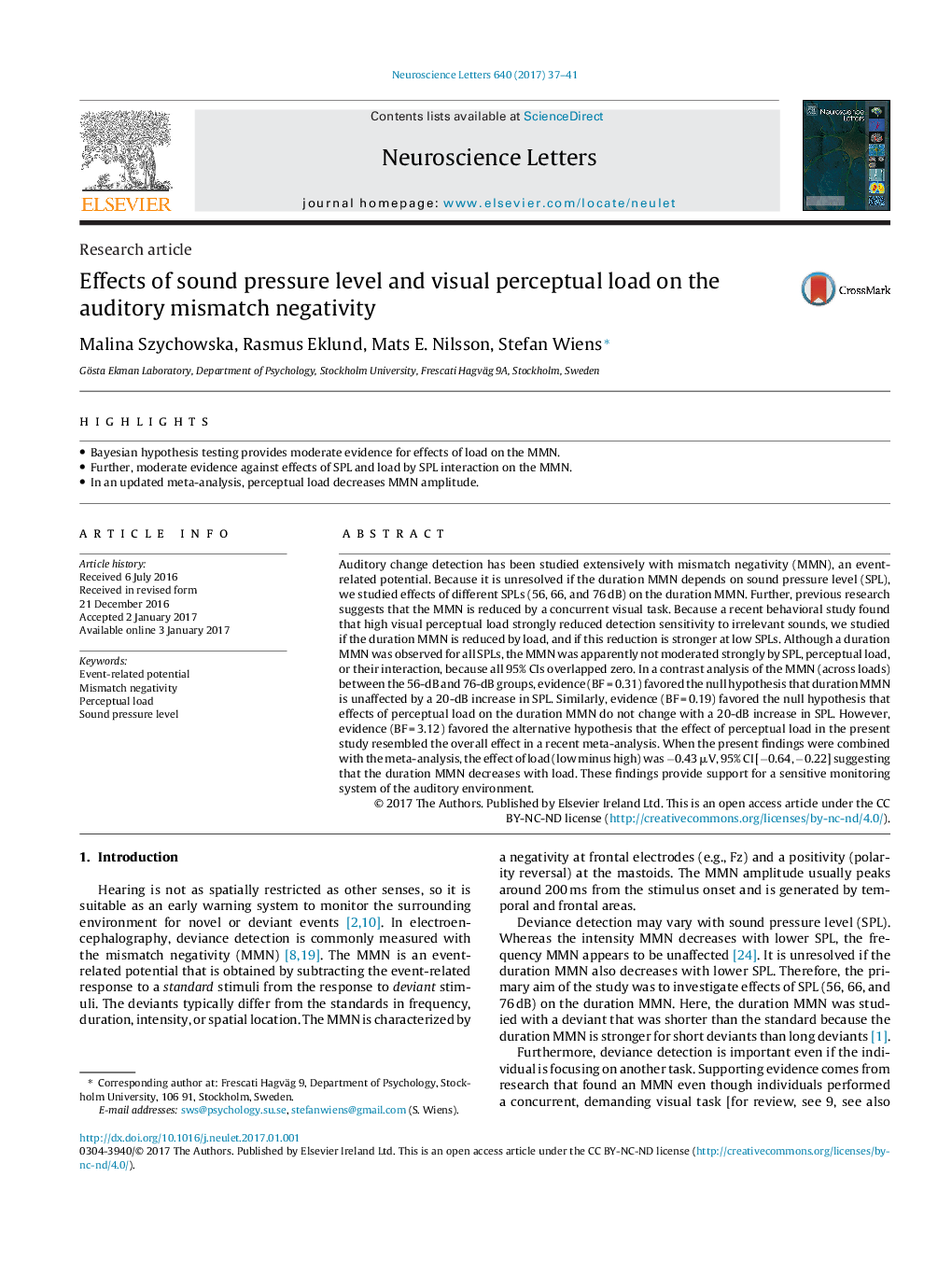| Article ID | Journal | Published Year | Pages | File Type |
|---|---|---|---|---|
| 5738815 | Neuroscience Letters | 2017 | 5 Pages |
â¢Bayesian hypothesis testing provides moderate evidence for effects of load on the MMN.â¢Further, moderate evidence against effects of SPL and load by SPL interaction on the MMN.â¢In an updated meta-analysis, perceptual load decreases MMN amplitude.
Auditory change detection has been studied extensively with mismatch negativity (MMN), an event-related potential. Because it is unresolved if the duration MMN depends on sound pressure level (SPL), we studied effects of different SPLs (56, 66, and 76 dB) on the duration MMN. Further, previous research suggests that the MMN is reduced by a concurrent visual task. Because a recent behavioral study found that high visual perceptual load strongly reduced detection sensitivity to irrelevant sounds, we studied if the duration MMN is reduced by load, and if this reduction is stronger at low SPLs. Although a duration MMN was observed for all SPLs, the MMN was apparently not moderated strongly by SPL, perceptual load, or their interaction, because all 95% CIs overlapped zero. In a contrast analysis of the MMN (across loads) between the 56-dB and 76-dB groups, evidence (BF = 0.31) favored the null hypothesis that duration MMN is unaffected by a 20-dB increase in SPL. Similarly, evidence (BF = 0.19) favored the null hypothesis that effects of perceptual load on the duration MMN do not change with a 20-dB increase in SPL. However, evidence (BF = 3.12) favored the alternative hypothesis that the effect of perceptual load in the present study resembled the overall effect in a recent meta-analysis. When the present findings were combined with the meta-analysis, the effect of load (low minus high) was â0.43 μV, 95% CI [â0.64, â0.22] suggesting that the duration MMN decreases with load. These findings provide support for a sensitive monitoring system of the auditory environment.
